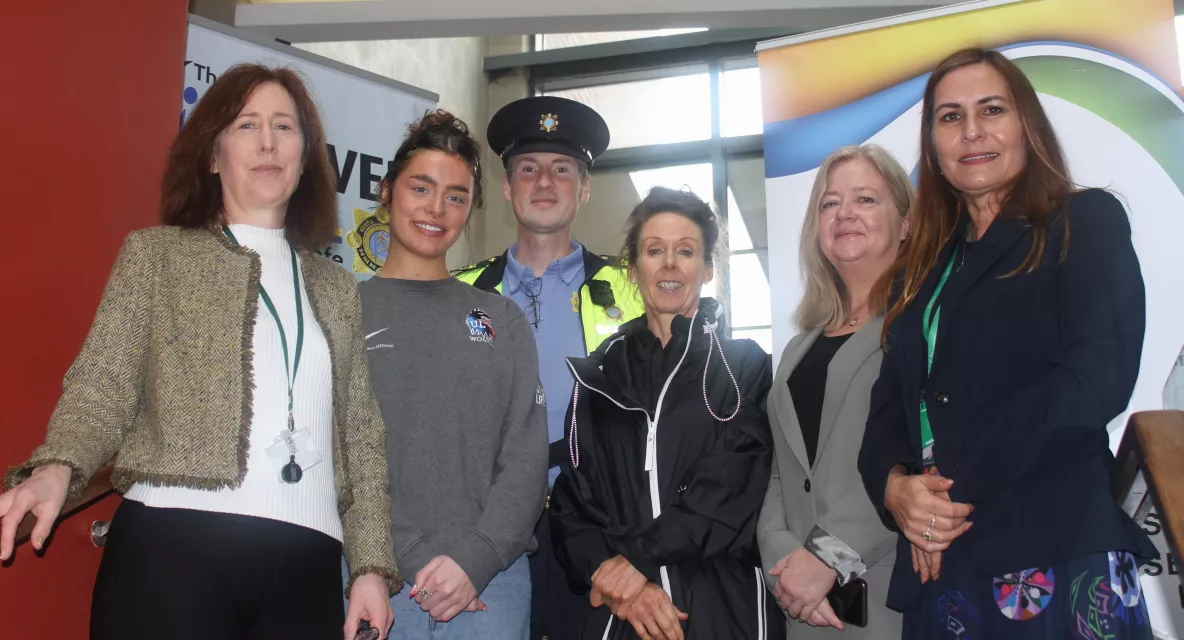
Students at University of Limerick have joined their peers across the region in calling for awareness of drug driving.
Student union representatives from the three third level institutions in the Mid-West joined An Garda Siochana, the RSA and the HSE Drug & Alcohol Service Midwest were among those attending the launch of the #DrugDrivingAware campaign, hosted by the Midwest Regional Drugs & Alcohol Forum (MWRDAF) in the Absolute Hotel.
The campaign features a series of six short videos involving Student Union Representatives asking Sgt Kevin Balfe, Road Section, Limerick Division of An Garda Siochana a number of questions about drug driving and the implications of the roadside test.
The initiative was the idea of MWRDAF 3rd Level Drug & Alcohol Network to get information out to the third level student population in the region which numbers approximately 30,000 about An Garda Siochana’s new roadside drug test and what it could mean to a student if drugs are found in their system at one of these tests.
Student union representatives UL, Mary Immaculate College and Technological University of the Shannon were involved in the campaign from the start.
Sgt Kevin Balfe said: ““Being involved in this initiative is helping An Garda Siochana and the Road Safety Authority get an important message out to the student population. There are a significant number of young drivers and students on the road today.
“The questions asked by the Student Union Reps in the campaign really gets to the core of the matter in terms of what a drug driving conviction can mean and how it can limit life choices.”
Dr Eva Devaney, Healthy UL, Substance Use & Gambling, who took a lead role in the initiative, said: “More and more students are on the road driving to their third level courses. It’s important that they are aware of the roadside drug test and what it can mean for them if they take a substance and drive.
“Our main concern is about student safety and the safety of others, but it’s also about bringing awareness to the longer-term implications.”
UL’s Student Welfare Officer Emily Rosenkranz said: “We want students to be aware that depending on the substance and the person, drugs can last in your system longer than you think.
“A drug driving conviction can affect you getting a visa to travel to some countries and future job opportunities. An immediate impact of a conviction is being put off the road for a year and may mean you can’t finish your college course.”
Annemaree Coady, Healthy Campus Coordinator in MIC said the campaign had a “crucial role in educating and safeguarding our student communities on the risks and consequences of drug driving.
“Safety and well-being are paramount and initiatives like these are instrumental in promoting responsible behaviour among our students and in our communities.”
Gearoid Folan, Vice President, Education and Welfare at TUS Moylish, one of the student representatives involved in the initiative, said: “It is important that all students who drive vehicles are aware of roadside testing and what happens when someone is stopped and tested, the process around this, and if a substance is found in your system, what are the impacts.”
Helen Ryan, co-ordinator of the MWRDAF, speaking at the launch, expressed a hope that the campaign would also be of interest to many beyond the third level population in the Mid-West and thanked the students for leading the way in this important awareness initiative.